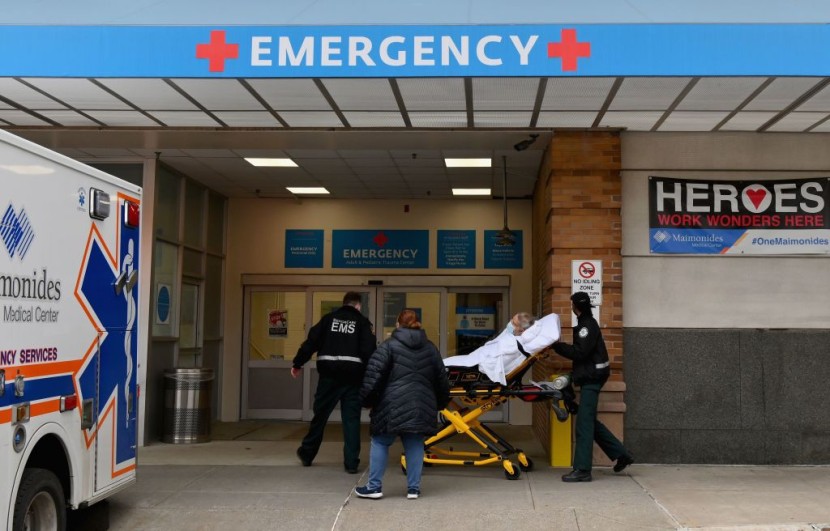
No one anticipated the current COVID-19 wave, which was driven by the Omicron variant, to result in as many deaths as it did.
On average, 2,200 new COVID fatalities are reported per day in the United States as of Wednesday. While this is down from last winter's peak of 3,400, it is still three times greater than the average number of deaths reported two months ago.
Omicron Accounts for More US Deaths Than Delta Variant
Furthermore, vaccinations have only recently been administered, and children were not yet eligible, and the topic of boosters was still a long way off last winter. Even though roughly 60% of Americans were completely vaccinated during the most recent wave, daily omicron mortality remains high.
Doctors who specialize in infectious diseases claim that the majority of those who die are unvaccinated adults in their 30s and 40s who have no underlying health problems. A tiny number of fatalities occur among fully vaccinated (and boosted) persons who are either older or have prior illnesses that make them more likely to die.
Unvaccinated Americans continue to account for the bulk of COVID deaths over two years after the outbreak began. According to data from the Centers for Disease Control and Prevention, unvaccinated persons died at a rate of 9 per 100,000 during the first week of December when the omicron strain began to spread.
Fully vaccinated persons died at a rate of 0.4 per 100,000, implying that unvaccinated people were 20 times more likely to die from the virus. From California to Mississippi, state-level data indicates comparable effects, according to ABC News.
Read Also : Stealth Omicron BA.2 Stronger Than Other COVID-19 Variants, Can Cause More Serious Illness: Japan Study
Joe Biden Extends National Emergency
President Joe Biden said on Friday that the national emergency proclaimed in March 2020 in response to the coronavirus outbreak will be extended. The extra power was supposed to expire on March 1st.
The decision comes as a wave of coronavirus infections caused by the highly transmissible Omicron variety recedes in the United States and several states and localities ease pandemic restrictions, according to a letter from Biden to Congress made public by the White House.
However, the virus is still affecting the country. More than 75,000 Americans have been admitted to hospitals due to the illness as of Friday. Deaths, which can be several weeks behind case numbers, are climbing in 14 states and remain at about 2,300 per day nationwide.
Special powers are granted in the event of a national emergency. It exempts the federal government from some legal restrictions, allowing it to spend more money and execute more activities with more ease. Had Biden not informed Congress of his desire to prolong the pandemic emergency, it would have expired.
On March 13, 2020, President Donald J. Trump proclaimed the pandemic a national emergency for the first time. Trump stated that further steps were required to tackle the virus, which had infected 1,645 individuals in the United States at the time - a number that has already risen to almost 78 million, New York Times reported.
Meanwhile, Democratic governors in Massachusetts, Illinois, New York, Rhode Island, California, Connecticut, Delaware, New Jersey, and Oregon have lately reversed portions of the mask mandates.
California Gov. Gavin Newsom outlined a plan on Thursday based on the idea that the virus is nearing an endemic rather than pandemic stage. Because it is endemic, it is no longer a major threat in some areas, as per Republic World.
Related Article : COVID-19 Variants Remain Major Threat With Quick Evolution; Omicron 10 Times More Infectiou, Study Reveals
@YouTube
© 2026 HNGN, All rights reserved. Do not reproduce without permission.








